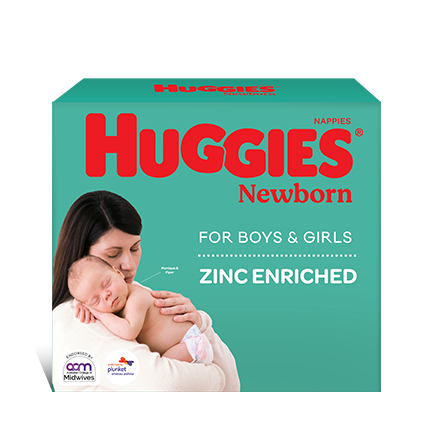There are a few names for the Chinese Birth Chart - it's also known as the Chinese Pregnancy Calendar and the Chinese Birth Calendar. But no matter what it's called, the essential principles are the same.
The Chinese Birth Chart is a predictor tool which claims to identify with an alarming degree of accuracy, what gender a baby will be when it's born. But as for a guarantee of the baby's gender? Well, there's no promises made about that. Though some reports claim that when the chart is used correctly, it is accurate up to 90% of the time.
One aspect which is lacking in the whole Chinese Birth Chart discussion is scientific evidence. This is because there is none. Like so many good urban myths and old wives tales, there is just not any proof to support its claims. But it is undeniable that some people really believe in it.
Interestingly, for parents who are able to look at the chart and find it is accurate in correctly identifying their own children's gender, this raises chart's credibility a notch or two.
Where did the Chinese birth chart predictor come from?
At the risk of stating the obvious, China of course, but more specifically Peking or what is now known as Beijing. Legend has it that the original chart was found by a scientist in a royal tomb in this lovely city over 700 years ago. For those who are really keen to see the Chinese Birth Chart for themselves, it is on display at the Beijing Institute of Science in China. But is it the real one?
There are reports that the chart which is on display is a copy of the original. This is said to be so precious, that it's locked deep in the vaults of the institute, away from prying eyes.
But I really believe in it!
It's important to view the Chinese Birth Chart as a little harmless fun. A way to while away some time and ponder on the likelihood of it being correct. After all, it's got to be right 50% of the time hasn't it?
It's possible to use the Chinese Birth Chart both retrospectively and for planning a baby of a particular gender in the future. But just be aware that you'll need to calculate the mother's age when she is likely to conceive. For obvious reasons, this isn't always possible.
The Chinese Birth Chart relies on two important principles:
- The age of the mother when she conceived.
- The month in which the mother conceived.
To use the chart correctly (see below), first locate the mother's age at conception in the Y axis (the column on the left) and then look across on the X axis (the column which goes horizontally across the page). Where the two intersect there is either the letter M for male or F for female.
Some charts give a little extra prompt by colouring the F in pink and the M in pale blue. But we're sure you get the difference without too much help! Some Chinese Birth Charts actually have two charts; the first relates to mothers who are aged between 18-32 and the second for mothers aged from 33-45.
Where's the proof?
Not all charts are the same though and they often provide a different gender prediction. So at the risk of stating the obvious, if the charts are inconsistent, then how accurate can they be?
In the 700 years since the chart was reputed to have been found, there have just been too many evolutions and versions. These have now reached the point where any accuracy, if indeed it ever existed, has been filtered out.
So, good luck with using the Chinese Birth Chart to predict what gender your baby will be. Just don t get your heart set on what the chart tells you. Remember, it's a game; a folly and needs to be viewed as a form of entertainment rather than a guarantee.
Chinese Conception Chart
| Age at Conception | Jan | Feb | Mar | Apr | May | Jun | Jul | Aug | Sep | Oct | Nov | Dec |
| 18 | F | M | F | M | M | M | M | M | M | M | M | M |
| 19 | M | F | M | F | F | M | M | F | M | M | F | F |
| 20 | F | M | F | M | M | M | M | M | M | F | M | M |
| 21 | M | F | F | F | F | F | F | F | F | F | F | F |
| 22 | F | M | M | F | M | F | F | M | F | F | F | F |
| 23 | M | M | M | F | M | M | F | F | F | M | M | F |
| 24 | M | F | F | M | M | F | M | F | M | M | F | M |
| 25 | F | M | F | M | F | M | F | M | F | M | M | M |
| 26 | M | M | M | M | M | F | M | F | F | M | F | F |
| 27 | F | F | M | M | F | M | F | F | M | F | M | M |
| 28 | M | M | M | F | F | M | F | M | F | F | M | F |
| 29 | F | M | F | F | M | F | M | M | F | M | F | F |
| 30 | M | M | F | M | F | M | M | M | M | M | M | M |
| 31 | M | M | M | M | F | F | M | F | M | F | F | F |
| 32 | M | F | F | M | F | M | M | F | M | M | F | M |
| 33 | F | M | M | F | F | M | F | M | F | M | M | F |
| 34 | M | M | F | F | M | F | M | M | F | M | F | F |
| 35 | M | F | M | F | M | F | M | F | M | M | F | M |
| 36 | M | F | M | M | M | F | M | M | F | F | F | F |
| 37 | F | F | M | F | F | F | M | F | F | M | M | M |
| 38 | M | M | F | F | M | F | F | M | F | F | M | F |
| 39 | F | F | M | F | F | F | M | F | M | M | F | M |
| 40 | M | M | M | F | M | F | M | F | M | F | F | M |
| 41 | F | F | M | F | M | M | F | F | M | F | M | F |
| 42 | M | F | F | M | M | M | M | M | F | M | F | M |
| 43 | F | M | F | F | M | M | M | F | F | F | M | M |
| 44 | M | F | F | F | M | F | M | M | F | M | F | M |
| 45 | F | M | F | M | F | F | M | F | M | F | M | F |
Last Published* May, 2024
*Please note that the published date may not be the same as the date that the content was created and that information above may have changed since.





















